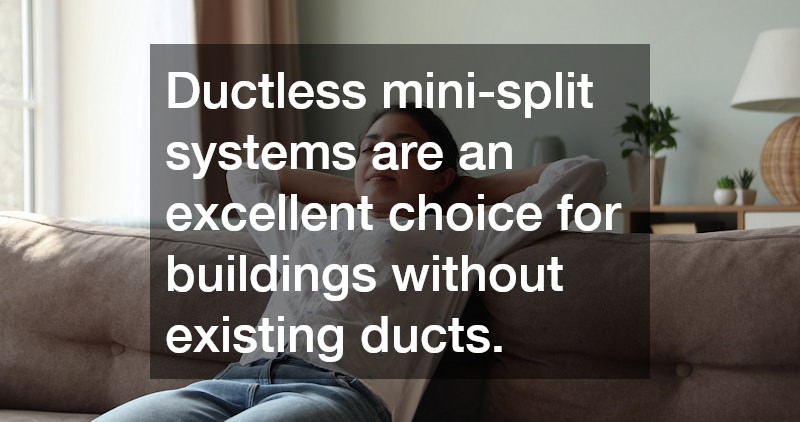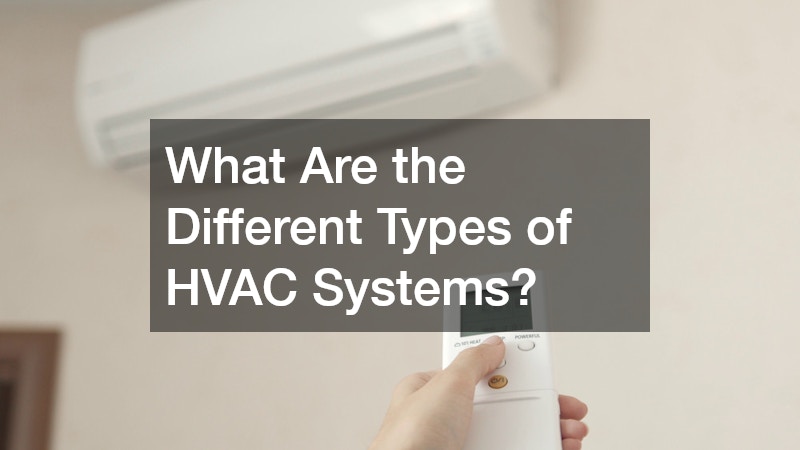
Central Air Conditioning Systems
Central air conditioning systems are a common type of HVAC system found in many homes and commercial buildings. They utilize a network of ducts distributed throughout the building to circulate cooled air. The main components of this system include an outdoor compressor unit and an indoor evaporator coil. By removing heat and humidity from the indoor air, central AC systems provide a comfortable environment even during the peak of summer. One of the key benefits is their ability to maintain a consistent temperature throughout the entire building.
For installation and maintenance, consulting with professional HVAC services is essential. Proper installation ensures the efficiency and longevity of the system, while regular maintenance prevents breakdowns and maintains optimal performance. Central AC systems may require significant upfront costs, including ductwork, but their efficiency often results in lower energy bills over time. Additionally, these systems can easily integrate with existing heating systems, making them a versatile option for all-season climate control. When considering a central AC system, it is important to evaluate your specific cooling needs and the local climate conditions.
Moreover, advancements in technology have led to more energy-efficient central air conditioning systems. Features such as programmable thermostats and variable-speed compressors help reduce energy consumption. Energy Star-certified systems are a popular choice, aligning with modern energy standards. To maximize efficiency, proper sealing and insulation of ductwork are crucial. Overall, central air conditioning systems offer a balance of performance and efficiency with proper HVAC services support.
Ductless Mini-Split Systems
Ductless mini-split systems are an excellent choice for buildings without existing ducts. These systems consist of an outdoor unit and one or more indoor units, which are typically mounted on walls. The main advantage of ductless systems is their flexibility, allowing for targeted heating or cooling of individual rooms or zones. This zoning capability leads to higher energy efficiency, as energy is not wasted on unused areas. Mini-splits can also be installed in new additions or retrofitted into homes where extending ductwork would be challenging.
In addition to flexibility, ductless systems offer easy installation processes. Without the need for extensive ductwork, installation is less intrusive and can be completed more rapidly by professional HVAC services. The design options of indoor units are also diverse, with different styles that can integrate seamlessly into various home designs. Despite the advantages, it’s important to mention higher initial costs per unit compared to central systems. However, the energy savings over time often compensate for the initial investment.
Technological advancements in ductless systems have led to improved inverter technology and dual capabilities for heating and cooling. They also feature advanced filtration systems that improve indoor air quality by capturing allergens and dust. This makes them a good option for individuals with allergies or respiratory issues. Connectivity features, including smart thermostats, allow homeowners to control the systems remotely, enhancing convenience and efficiency. All these factors make ductless mini-split systems a widely popular solution in modern homes.
Heat Pump Systems
Heat pump systems provide both heating and cooling from a single unit. These systems transfer heat rather than generate it, making them a more energy-efficient option compared to traditional HVAC systems. Heat pumps can be air-source, transferring heat between your house and the outside air, or ground-source (geothermal), transferring heat between your home and the ground. During the summer, they function like an air conditioner by removing heat from inside the home. Conversely, in the winter, they extract heat from the outside air or ground to warm the indoor space.
The versatility of heat pump systems makes them a popular choice, especially in moderate climates. They are quieter than conventional combustion heating systems, with a longer lifespan when properly maintained by HVAC services. Maintenance includes regular inspection of the ducts, filters, and coils to ensure efficient operation. The cost of installation can be higher, particularly for geothermal systems which require digging to install a ground loop. Over time, however, the efficiency and low operating costs contribute to significant savings.
Another advantage of heat pump systems is the potential for integration with residential solar systems. Coupling solar panels with a heat pump can drastically reduce energy bills and carbon footprint. Modern heat pumps offer smart technology to adjust their operation dynamically, aligning energy usage with the home’s demand. Some models even have dual-fuel capabilities, combining with a furnace for additional heating capacity during extremely cold weather. With ongoing advancements, heat pump systems are continually evolving as a staple in sustainable heating solutions.
Hybrid Systems
Hybrid HVAC systems combine a heat pump with a furnace, offering an efficient solution for climates with varying temperature extremes. These systems switch seamlessly between electric and gas-based heating, optimizing for cost-effectiveness. During milder weather, the heat pump operates to maintain comfortable temperatures, while the furnace takes over during colder periods. This flexibility reduces fuel consumption and improves overall efficiency. The choice between fuel types can often be automated, with HVAC services customizing settings based on local utility costs and climate conditions.
The dual operation of hybrid systems maximizes energy efficiency and provides consistent comfort. The transition between the two heating sources happens smoothly, with little to no impact on indoor comfort levels. Depending on the structure of the building and existing systems, hybrid systems can be a straightforward installation. Consultation with experienced HVAC services can ensure the system is tailored to meet specific needs and preferences. This adaptability makes hybrid systems an appealing option for both residential and commercial applications.
Although the upfront installation cost can be higher, the potential savings in energy costs make hybrid systems a wise investment. They offer environmentally friendly benefits by reducing total emissions from fossil fuels. Some hybrid systems feature high-efficiency models that qualify for federal or state tax credits, providing additional financial incentives. Homeowners with hybrid systems often find peace of mind knowing they are using an energy-efficient system that adapitates to changing energy demands. As energy prices fluctuate, hybrid HVAC systems offer a resilient and sustainable solution for heating and cooling needs.




